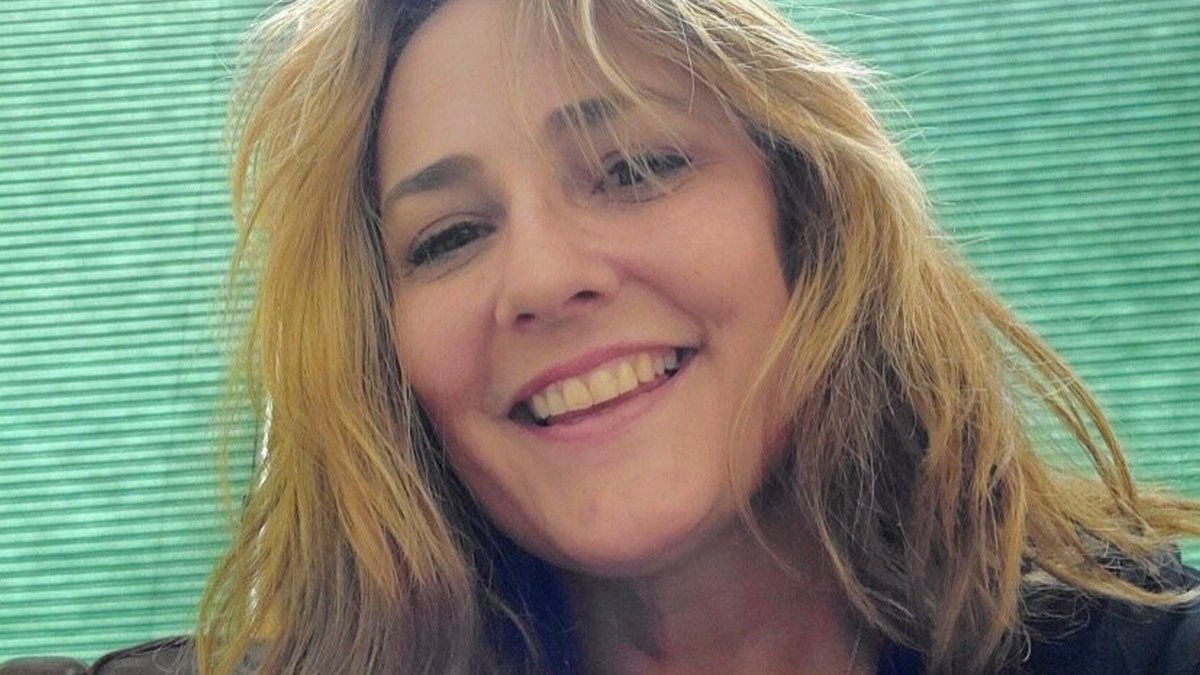One of Jeffrey Epstein’s first accusers is now linking US President Donald Trump to the late, disgraced financier.
Maria Farmer, an artist in her 50s, has claimed she had a ‘troubling encounter’ with Trump back in the 1990s.
Farmer and her younger sister Annie both testified at Ghislaine Maxwell’s sex trafficking trial.
She claimed she urged the police in 1996 and later the Federal Bureau of Investigation to look into Epstein’s social circle.
The development comes amid Trump suing the Wall Street Journal for $10 billion over a bombshell story over his ties to Epstein.
But who is Farmer? What do we know about her? And what has she said?
Let’s take a closer look
Who is Farmer?
Farmer is an American visual artist.
She is believed to be the first Epstein victim who went to the authorities.She has said that she met Epstein when she was a student at the New York Academy of Art.
Farmer has claimed she was introduced to Epstein by Elaine Guggenheim, who was the dean of the academy at that time – a claim the New York Academy of Art has denied.
Guggenheim has said she is “distantly related” to the family behind the Guggenheim Museum.
Farmer worked for Epstein in 1995 and 1996.
She said he initially wanted her to buy art on his behalf.
Farmer accused Epstein and Maxwell of assaulting her at the Ohio estate of Les Wexner.
Wexner, an associate of Epstein, is the ex-chairman of Limited Brands.
Farmer said she later found out that Maxwell assaulted her sister Annie at Epstein’s New Mexico ranch.
Farmer, who fled New York in the aftermath of the allegations, accused Maxwell of intimidating her and trying to destroy her reputation.
“I was terrified of Maxwell and Epstein and I moved a number of times to try to hide from them,” Farmer stated in an affidavit filed last year.
Farmer has said she kept a low-profile over the past two decades.
She has been earning money selling antiques and restoring old houses.
She was diagnosed with a brain tumour in 2019.
In 2020, she was diagnosed with Hodgkin’s lymphoma.
What has she said?
Farmer said she took her concern about Epstein and his associates to the authorities.
She said she first approached the New York Police Department’s Sixth District in 1996.
Nearly a decade later, in 2006, she was interviewed by the FBI.
Farmer claimed she told the authorities to look at the relationship between Epstein and high-profile celebrities like Trump and politicians like Bill Clinton.
She said she mentioned Trump specifically because the two men “seemed so close”.
Farmer has claimed she has a ‘troubling encounter’ with Trump in the 1990s.
At the time, she was a teenager and Trump was a real-estate developer.
Farmer, who was working for Epstein in 1995, arrived at his offices in Manhattan after getting an unexpected call from him.
Farmer, who was wearing running shorts, claimed Trump, who was in a business suit, ‘stared at her bare legs’.
She said she remembered feeling scared. Then, Epstein came into the room.
He told Trump “no, no. She’s not here for you.”
The men then left the room, she said.
Farmer claimed she heard Trump say that she looked 16-years-old.
The White House has denied the incident ever occurred.
“The president was never in [Epstein’s] office. The fact is that the president kicked him out of his club for being a creep," White House communications director Steven Cheung said.
The Epstein controversy has created a major fissure between Trump and his loyal base , with some of his most vocal supporters slamming the White House for the way it has handled the case, and questioning why Trump would not want the documents made public.
Trump had promised to sue the Wall Street Journal almost immediately after the paper put a new spotlight on his well-documented relationship with Epstein by publishing an article that described a sexually suggestive letter that the newspaper says bore Trump’s name and was included in a 2003 album compiled for Epstein’s 50th birthday.
Trump denied writing the letter, calling the story “false, malicious, and defamatory.”
The suit, filed in filed in federal court in Miami, accuses the paper and its reporters of having “knowingly and recklessly” published “numerous false, defamatory, and disparaging statements,” which, it alleges, caused “overwhelming financial and reputational harm” to the president.
With inputs from agencies


)

)
)
)
)
)
)
)
)



